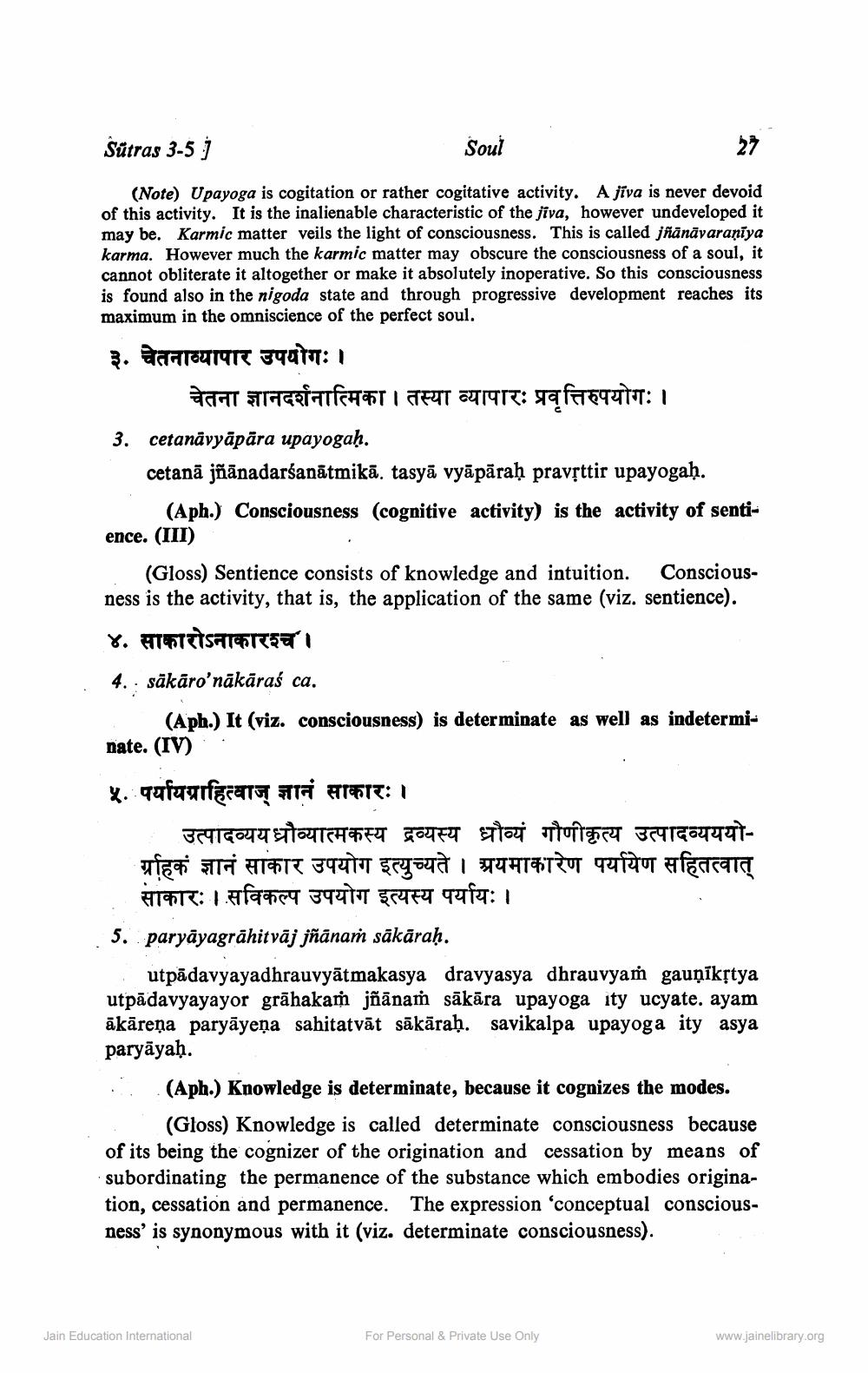________________
Sütras 3-5 )
Soul
23
(Note) Upayoga is cogitation or rather cogitative activity. A jīva is never devoid of this activity. It is the inalienable characteristic of the jiva, however undeveloped it may be. Karmic matter veils the light of consciousness. This is called jñānāvaraṇīya karma. However much the karmic matter may obscure the consciousness of a soul, it cannot obliterate it altogether or make it absolutely inoperative. So this consciousness is found also in the nigoda state and through progressive development reaches its maximum in the omniscience of the perfect soul. 3. Warumm J9ATT: 1
चेतना ज्ञानदर्शनात्मिका। तस्या व्यापारः प्रवृत्तिरुपयोगः । 3. cetanävyāpāra upayogaḥ.
cetanā jñānadarśanātmikā, tasyā vyāpāraḥ pravșttir upayogah.
(Aph.) Consciousness (cognitive activity) is the activity of sentience. (III)
(Gloss) Sentience consists of knowledge and intuition. Consciousness is the activity, that is, the application of the same (viz. sentience). 8. ATATTIS 1951 4. sākāro'nākāraś ca.
(A ph.) It (viz. consciousness) is determinate as well as indeterminate. (IV) ५. पर्यायग्राहित्वाज ज्ञानं साकारः।
उत्पादव्ययध्रौव्यात्मकस्य द्रव्यस्य ध्रौव्यं गौणीकृत्य उत्पादव्यययोग्राहकं ज्ञानं साकार उपयोग इत्युच्यते । अयमाकारेण पर्यायेण सहितत्वात्
साकारः । सविकल्प उपयोग इत्यस्य पर्यायः । 5. paryāyagrāhitvāj jñānam sākāraḥ.
utpādavyayadhrauvyātmakasya dravyasya dhrauvyaṁ gauņīkstya utpādavyayayor grāhakam jñānam sākāra upayoga ity ucyate. ayam ākāreņa paryāyeņa sabitatvāt sākāraḥ. savikalpa upayoga ity asya paryāyaḥ. . (Aph.) Knowledge is determinate, because it cognizes the modes.
(Gloss) Knowledge is called determinate consciousness because of its being the cognizer of the origination and cessation by means of subordinating the permanence of the substance which embodies origination, cessation and permanence. The expression 'conceptual consciousness' is synonymous with it (viz. determinate consciousness).
Jain Education International
For Personal & Private Use Only
www.jainelibrary.org




